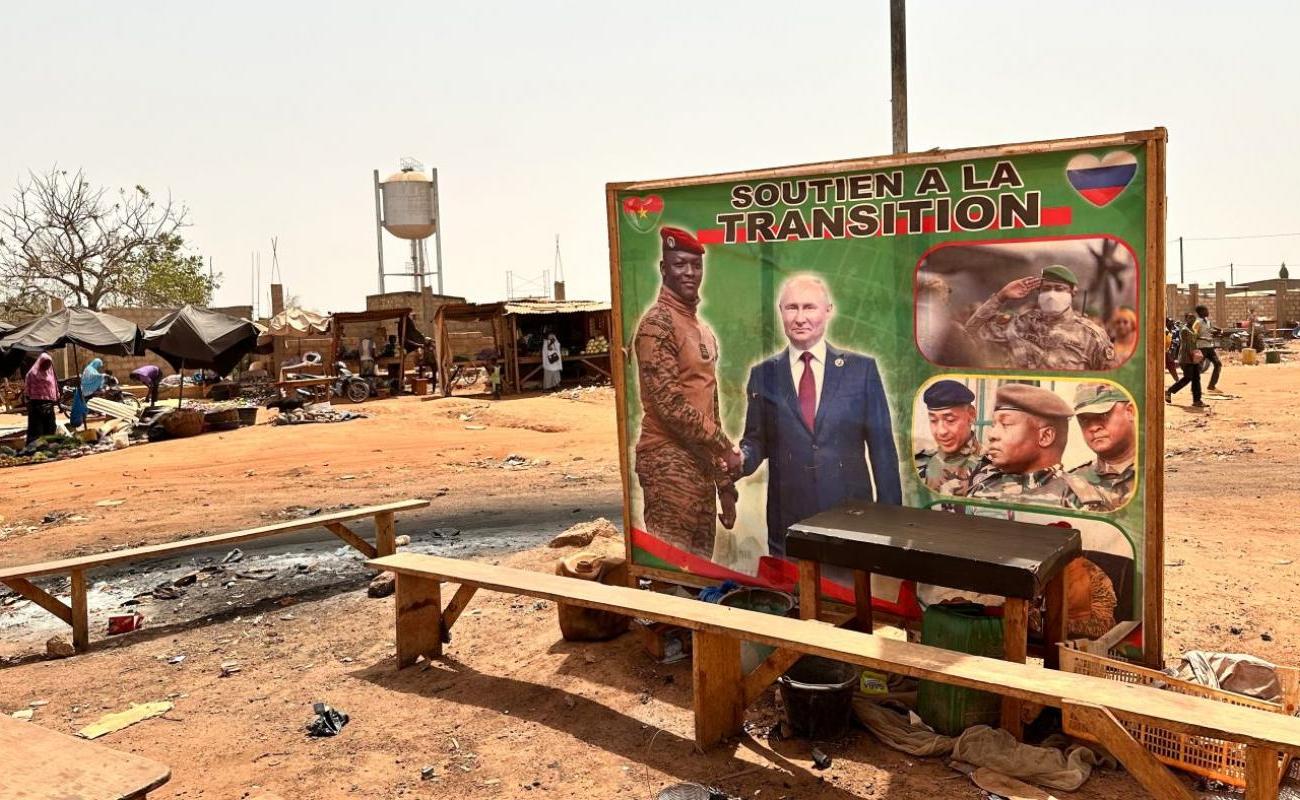Putin Building African Springboard for War on West

The continent offers the Kremlin a low-risk, high-yield theater to destabilize NATO’s southern flank, sustain its war economy, and pre-position military assets in the event of a broader conflict against NATO partners and their allies.
In Libya, Russian assets have dug in at airbases like Al-Khadim and Jufra, giving Moscow a permanent Mediterranean launchpad. This presence has become even more critical following the fall of the Assad regime in Syria and the resulting collapse of Russia’s military foothold at Tartus.
At the same time, in Mali and the Central African Republic, Russian forces provide both regimes with security in exchange for mining concessions through deals made in gold, diamonds, and blood.
A resource-strapped Kremlin, cut off from Western markets, is relying on Africa not just for diplomatic optics but for lucrative commodities. Russian networks built by the Wagner mercenary group, and now managed by Moscow’s GRU intelligence agency, are trafficking precious metals and hydrocarbons through shell companies, ghost fleets, and middlemen to convert sanctioned goods into cash for the war in Ukraine.
But it’s not just about extraction, it’s also about erosion.
The Kremlin’s Africa strategy chips away at Western influence in fragile democracies through disinformation campaigns, arms shipments, and paramilitary partnerships. When Russian flags appeared in Niamey hours after Niger’s coup, they weren’t spontaneous, they were pre-positioned.
This approach has not gone unnoticed. On July 18, the UK sanctioned seven GRU officers linked to sabotage and malign influence operations in Europe and Africa, underscoring growing concern that the Kremlin’s activities are part of a coordinated, global campaign.
Russian operations in Africa are not just about fomenting instability or profiting from resource extraction, they are also part of a long game to make the continent a front in a global confrontation with the West.
US officials have warned that Russia may soon begin coordinating its war efforts with China in an attempt to open multiple theaters of conflict — forcing the US and its allies to split their attention, stretch resources, and confront crises across the globe.
This concern has been echoed by Gen. Alexus Grynkewich, NATO’s supreme allied commander in Europe. He warned the alliance must prepare for simultaneous conflicts in Europe and the Pacific, highlighting the possibility that Moscow and Beijing may coordinate campaigns as early as 2027.
This is why Putin has refused to scale down Russia’s Africa footprint, even as it faces staggering battlefield losses in Ukraine. As the Kremlin prepares for a broader confrontation with NATO, Africa is being readied to serve as a launchpad for asymmetric operations, proxy escalation, and logistical disruption.
From the Sahel to the Mediterranean, Russian proxy forces could attack European interests or pin down NATO assets in the event of open war. It is no accident that the countries now flooded with Russian arms and military advisers sit on maritime chokepoints and energy corridors critical to European stability.
The US and its allies have responded, albeit slowly. Targeted sanctions have hit Wagner-linked companies and officials, but the machinery of Russian influence in Africa remains intact. Without coordinated efforts to sever its links with banks, ships, and middlemen, Moscow will continue to peddle bullets for minerals, and authoritarian stability for strategic leverage.
To counter Russia’s growing footprint in Africa, the West must adopt a coordinated strategy that combines financial pressure with engagement. Sanctions should extend beyond Wagner-linked entities to target the traders, logistics companies, and financial intermediaries enabling Russian operations, especially in the gold and diamond trade.
Despite existing restrictions, Moscow continues to launder the majority of its African gold through Dubai. The US and EU should impose secondary sanctions on complicit UAE-based firms and increase regulatory pressure to close this critical loophole.
At the same time, US Special Operations Commander Gen. Bryan Fenton has warned the US faces an “information void” that Russia exploits with disinformation and proxy narratives across Africa. With critical USAID programs hollowed out by Washington, European partners will need to fill the gap by investing in civil society, media resilience, and transparent security assistance to counter Moscow’s asymmetric playbook.
Putin’s Africa strategy appears extravagant for a country bogged down in Ukraine, but in reality, it’s frugal. These are not full-scale deployments, they are low-cost, high-impact force multipliers. A few thousand operatives here, a few billion dollars in off-books trade there, and a dispersed network of pre-positioned assets, surveillance nodes, and logistics routes is ready to activate if a wider war breaks out.
Russia is not overextended in Africa, it is entrenched. And unless the West treats its activities as a central pillar of Moscow’s strategy, rather than a peripheral nuisance, the problem will metastasize.
